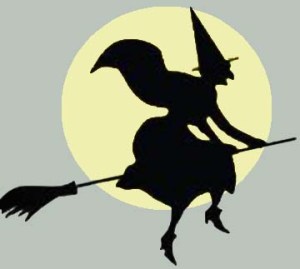
In my humble opinion, the Italian composer (意大利作曲家 Yìdàlì zuòqǔ jiā ) Enrico Toselli’s Nightingale Serenade is one of the most beautiful melodies that can pull on your heartstrings and stir your soul. Whether played on the violin or on the piano, it can convey to you a feeling of the regret of lost love and the yearning for what is no more. The vocal version is more concise and not as repetitive.
Here is my Chinese interpretation, and I think it follows the original lyrics quite closely.
爱的回忆
Ài de huíyì
The reminiscence of love,
像金色的梦,
xiàng jīnsè de mèng,
like a golden dream,
虽已成過去,
suī yǐ chéng guòqù,
although a thing of the past,
但依然深深地刻在心里.
dàn yīrán shēn shēn di kè zài xīnli.
is still deeply engraved in my heart.
依稀看见
Yīxī kànjiàn
I can vaguely see
你那微笑的脸庞;
nǐ nà wéixiào de liǎnpáng;
your smiling face;
无限的欢乐
wúxiàn de huānlè
and the boundless joy
点亮了我们青春的时光.
diǎn liàngle wǒmen qīngchūn de shíguāng.
that lit up our happy youth.
一切瞬间消灭了;
Yīqiè shùnjiān xiāomiè liǎo;
Everything was wiped out instantly;
爱的蜜汁干枯了.
ài de mì zhī gānkū liǎo.
the nectar of love has dried up.
好梦一场
Hǎo mèng yī chǎng
The sweet dream
换来满心痛苦和悲伤.
huàn lái mǎnxīn tòngkǔ hé bēishāng.
left me with a heart full of pain and sorrow.
前途多晦暗!
Qiántú duō huì’àn!
What gloom lies before me!
教我懊悔不堪.
Jiào wǒ àohuǐ bùkān.
It makes me regret unbearably.
岁月不返,
Suìyuè bù fǎn,
Time doesn’t return,
独自愁肠断.
dúzì chóu cháng duàn.
and I’m alone and heartbroken.
你是我唯一良伴.
Nǐ shì wǒ wéiyī liáng bàn.
You are my only ideal companion.
没有了你, 这世界多么黯淡.
Méiyǒule nǐ, zhè shìjiè duōme àndàn.
Without you, this world is dark and bleak.
啊!我心爱的阳光!
A! Wǒ xīn’ài di yángguāng!
Ah! My beloved sunshine!
你不再照耀我的前程.
Nǐ bù zài zhàoyào wǒ de qiánchéng.
You no longer illuminate my future
今世, 今生!
Jīnshì, jīnshēng!
in this life, ever.
一场 (yī chǎng) means a bout, a scene, an episode or an occurrence of some event. 一场好戏 (yī chǎng hǎo xì) means a good show. When spoken sarcasticaly, it refers to some funny or scandalour incident.
悲伤 (bēishāng) can be used as a noun (sorrow), a verb (to be sad) or adjective (being sad).
前途 (qiántú ) and 前程 (qiánchéng) both mean the road ahead. These words refer to the future or what lies ahead.
消灭 (xiāomiè) means to destroy, eradicate or to perish.
晦暗 (huì’àn) and 黯淡 (àndàn) both refer to a dim and gloomy condition.
后悔 (hòuhuǐ), 懊悔 (àohuǐ), and 悔恨 (huǐhèn) are different ways of saying regret or remorse, increasing in intensity.
后悔来不及.
Hòuhuǐ láibují.
Too late to regret.
愁肠寸断 (chóu cháng cùn duàn) is a Chinese idiom describing the extent of one’s sadness, likening it to having one’s insides broken into pieces.
陪伴 (péibàn) means to accompany or to keep somebody company. 伴侣 (bànlǚ) are companions. 良 (liáng) and 良好 (liánghǎo) mean good. Therefore, 良伴 (liáng bàn) is a good companion. 爱情 (àiqíng) means feelings of love. Therefore, 情伴 (qíng bàn) and 情侣 (qínglǚ) are lovers.
今世今生 (jīnshì jīnshēng), 今生今世 (jīnshēng jīnshì), or 此生 (cǐshēng) means in this life, or as long as I live.
今生今世我再也不想见到他了.
Jīnshēng jīnshì wǒ zài yě bùxiǎng jiàn dào tā le.
As long as I live, I never want to see him again.
On this Valentine’s Day, I suppose you’d expect to hear something like the following instead:
今生今世我将永远爱你.
Jīnshēng jīnshì wǒ jiāng yǒngyuǎn ài nǐ.
In this life I shall forever love you.

Recent Comments